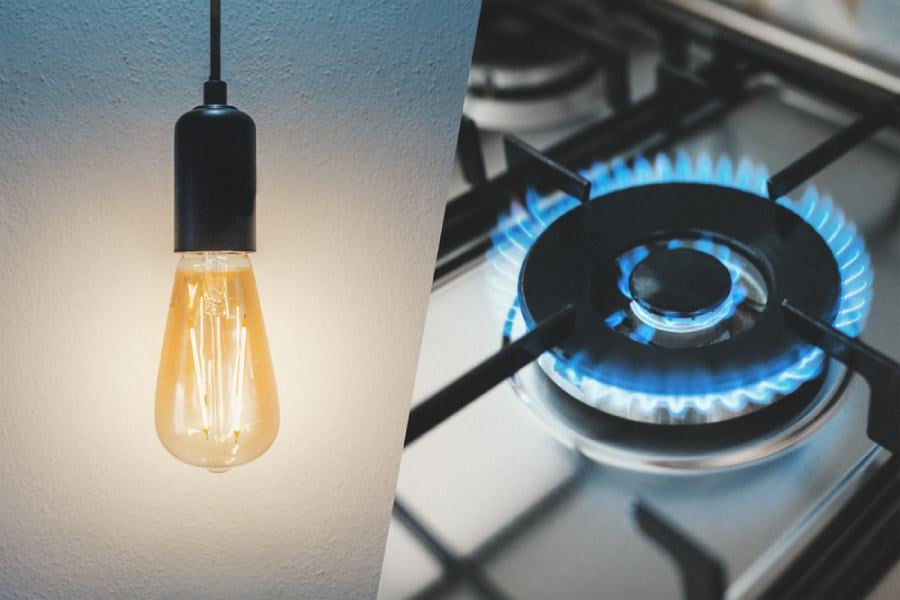
As the cost of gas and electricity continues to rise, individuals and businesses are increasingly concerned about excess bills related to their energy costs. Shorts' VAT team discusses how VAT on energy bills work, and the rates business owners should know about to help them be more savvy with their utilities savings.
Is VAT charged on gas and electricity?
VAT is charged at the reduced rate (5%) on gas and electricity for domestic use in dwellings such as houses, caravans and houseboats and in certain types of residential accommodation, such as children’s homes, hospices, monasteries, nunneries and halls of residence for university students.
The reduced rate is also charged on small quantities of gas and electricity even if they are not for domestic use.
What is a "small quantity" of gas and electricity?
- A small quantity of piped gas is not more than an average rate of 5 therms or 145-kilowatt hours per day, 150 therms or 4,397-kilowatt hours per month. This limit applies to gas supplied to one customer at any one of the premises.
- A small quantity of electricity is not more than an average rate of 33-kilowatt hours per day, 1,000-kilowatt hours per month, of electricity to one customer at any one premises.
The reduced rate applies whether the bill is based on actual meter readings or is estimated by the fuel supplier.
Other charges
Charges made by the fuel supplier to the consumer, which are part of the supply of gas or electricity, are reduced rated if the gas/electricity is reduced rated. Examples of charges which qualify for to be reduced rated are:
- Disconnection and re-connection of the supply.
- Installation of meters
- Rental charges for meters
- Removal of damaged coins or tokens from meters
- Standing charges
Supplies of gas and/or electricity to tenants
Local authorities have a statutory obligation to provide accommodation to domestic tenants.
Since it is a statutory obligation, the supply is not a business activity and is therefore outside the scope of VAT. The supply of gas and/or electricity as part of the provision of the accommodation is therefore also outside the scope of VAT. Local authority tenants do not, therefore, pay VAT when paying for heated accommodation.
If a local authority supplies gas or electricity which is not linked to accommodation, e.g. in accommodation that it previously owned but has since sold, VAT is charged at the reduced rate.
Gas and electricity supplied by landlords other than local authorities as part of a supply of heated, air-conditioned, or cooled accommodation is treated as a single supply of accommodation when a fixed charge is made to cover the gas and/or electricity. The rent charged for domestic accommodation is exempt from VAT and the charge for gas and/or electricity is therefore also exempt from VAT.
Metered supplies
If tenants are separately charged for metered supplies, or have coin -operated gas or electricity meters, the supply of gas/electricity will be subject to VAT and will be reduced-rated when supplied for domestic use or in small quantities.
Other energy sources
When purchased for domestic use, or in most categories in defined small quantities, the following are reduced rated for VAT:
- Fuel oil
- Gas oil
- Kerosene
- Solid fuel sold solely as fuel including coal, coke, charcoal, barbeque fuel and wood logs.
- Steam and heated water for heating, washing, kitchen use and laundry.
- Air conditioning, refrigeration and quick-freezing.
You can read our separate guide about VAT on solar panels and other energy-saving materials.
Standard rated energy
VAT at the standard rate (20%) is charged on gas, electricity and other energy sources which are not for domestic use and exceed the small quantity limits.
Also standard-rated are solid substances which are not held out for sale as fuel, such as artists’ charcoal, DIY timber off-cuts and remnants, sawdust for animal litter and wood for pulping.

Lynne Gill
My area of expertise is land and property transactions but I have extensive knowledge of both domestic and international VAT and I love complex VAT queries. I have an Honours degree in Business Studies and a VAT legal and technical qualification from the Institute of Indirect Taxation.
View my articlesTags: VAT
